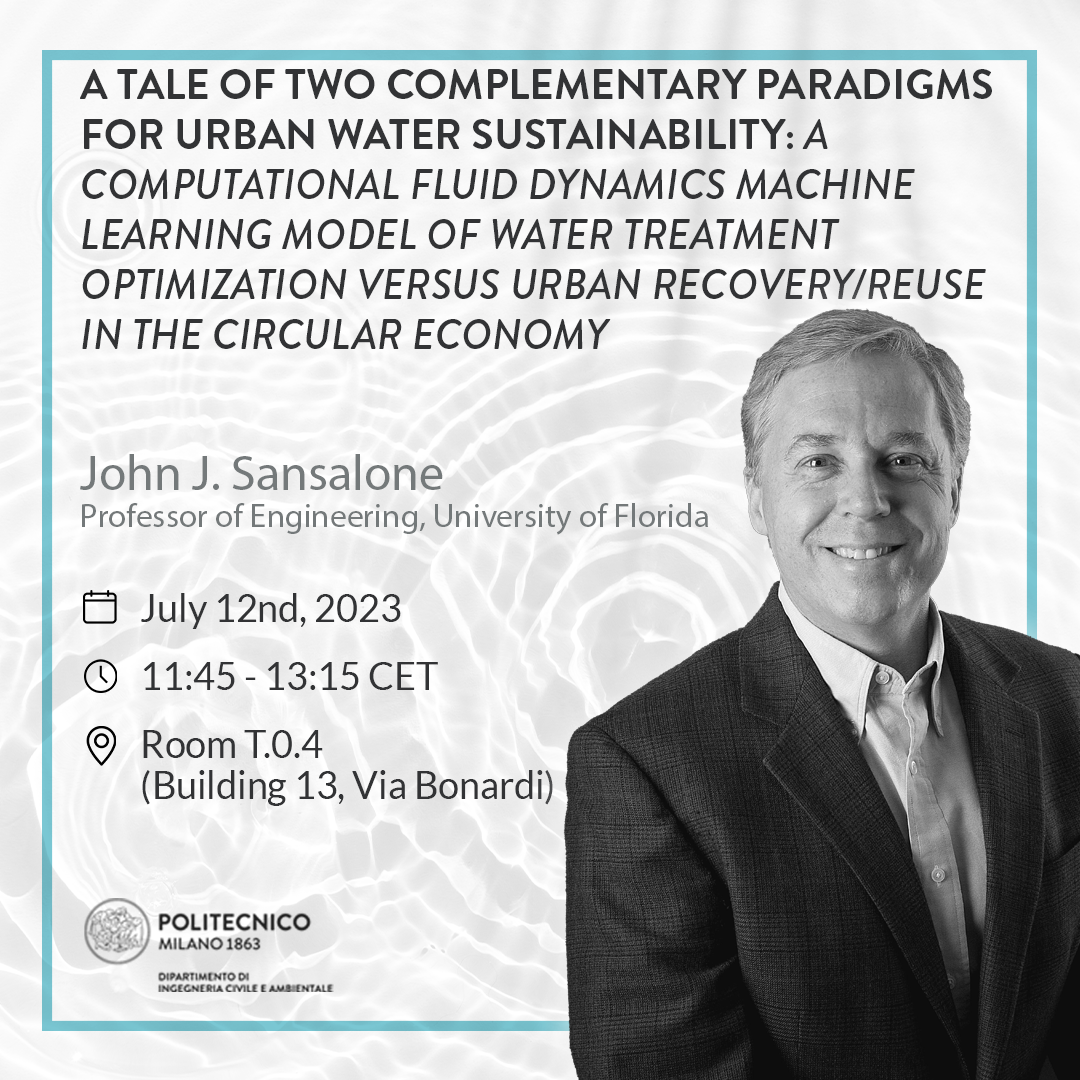
- Questo evento è passato.
A tale of two complementary paradigms for urban water sustainability: A computational fluid dynamics machine learning model of water treatment optimization versus urban recovery/reuse in the circular economy
12 Luglio 2023 @ 11:45 - 13:15

Mercoledì 12 Luglio si svolgerà presso l’aula T.0.4 (Edificio 13 – Via Bonardi), un seminario dal titolo “A tale of two complementary paradigms for urban water sustainability: A computational fluid dynamics machine learning model of water treatment optimization versus urban recovery/reuse in the circular economy” tenuto da John J. Sansalone, Professore di Ingegneria presso la University of Florida (USA).
Abstract
The built environs have evolved with a focus on individual motor vehicle transport, imperviousness that yield climate change impacts, and results in a degraded urban water cycle. This evolution is no longer sustainable and results, in part, in a human condition of chronic health dysregulation from anthropogenic chemical and particulate matter (PM) exposure and a lack of human physical activity. Focusing on the sustainability of urban water, a plethora of tools/techniques are available to facilitate urban water sustainability. This seminar contrasts two tools/techniques: (a) A state-of-the-art computational fluid dynamics (CFD) coupled machine learning (ML) modeling platform (CFD-ML) developed from physical model data and CFD simulations over a wide range of urban drainage clarification configurations, loadings, hydrodynamics, urban PM granulometry and PM-partitioned chemicals versus (b) Recovery/reuse of PM and PM-partitioned chemicals by maintenance operations that has historical roots in Italy that encompass hundreds of years. The modern incentive to recovery/reuse is the promulgation of load credits (PM, chemicals) as an alternative to structural best management practices (BMPs) in urban areas, in particular with urban infrastructure adjacency conflicts. The benefits of CFD-ML is optimization of treatment systems, in particular, with constrained volume/surface area as well as treatment optimization of systems designed for flood control, a perennial challenge in Italy and all urbanized countries. The liability of residence time (RT) guidance is shown for PM and chemical load management as well as the economic unsustainability of such guidance. The benefits of urban reuse/recovery of PM and chemical loads in a circular economy are demonstrated as well as a methodology used to provide load credits for such near source control practices. The parallel benefit to such frequent urban reuse/recovery of PM, chemical, trash (plastics, EDCs, PFAS …) loads is the reduction of ecological (including human) exposure to chronic toxins in aqueous and atmospheric environs.
